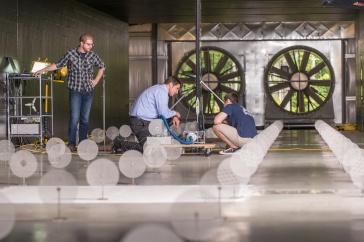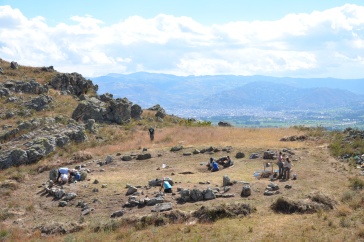
It could seem intimidating to grow up with a father whose legacy is essentially as large as the highest mountain peak on Earth. Instead, Norbu Tenzing Norgay ’86 has fully embraced it.
Tenzing’s father, Tenzing Norgay, was a Sherpa who, along with Sir Edmund Hillary, completed the first successful summit of Mt. Everest in 1953, and Tenzing grew up in the foothills of the Himalayas “deeply familiar” with his father’s achievement.
Rather than shy away from that, though, Tenzing has made it his life’s work to protect both the mountain that made his father famous and the people who call the area home. As vice president of the American Himalayan Foundation, Tenzing helps to ensure citizens of the region have access to such necessities as education and medical facilities.
“The older I get, the more I appreciate my father’s legacy and the impact he had on me,” Tenzing says. “Each day I wake up feeling my father’s presence to some degree.”
Tenzing has spent virtually his entire life in the mountains. He grew up in Darjeeling, India, with “an unobstructed 180-degree view of mountains” from his family home. He recalls spending many holiday seasons in the mountains of Bhutan, Nepal and Sikkim, and after briefly attending Manhattanville College in Purchase, New York, he transferred to UNH and took advantage of the natural beauty of the Granite State, as well.
“When I was at UNH I was quite active,” Tenzing says. “I used to go to Tuckerman’s Ravine or up to Mount Washington to ski. I was always grateful for my education there, not just in class but in the outdoors and living in New Hampshire and meeting the kinds of people I met.”
The people he focused his life on after school were those in the Himalayas, who have faced many significant challenges in recent years. The region’s best-known livelihood, climbing Everest, is immensely risky (“Nearly every Sherpa family has lost a member,” Tenzing says). What’s more, the changing climate has ravaged the area, endangering the water supply for “several billion people.”
But Tenzing, through the foundation, is fighting back to pre- serve a part of the world he feels is enchanting.
“When people go to the Himalayas, there’s something magical that happens,” Tenzing says. “They fall in love with the people and the mountains, and a piece of the heart wants to hold on to that part of the world. That’s why we try to connect the dots to bring people back, and to make sure there are schools, hospitals and clinics” when they do.
The foundation was there to assist following a devastating 2014 avalanche that killed 16 Sherpas, joining forces with other organizations to help ensure the children of those Sherpas could attend school. It also responded swiftly after a devastating 2015 earthquake in Nepal that claimed nearly 9,000 lives, working to rebuild schools, hospitals and monasteries in the region.
Some of the work is proactive, too: a program that began by relocating roughly 50 girls at high risk of being trafficked has grown to now include more than 10,000 girls in 500 schools throughout Nepal who otherwise would have been in danger. The foundation also assists in facilitating more than 2,000 surgeries per year at low cost for disabled children with limited financial means.
Tenzing lives in San Francisco now but makes at least two treks a year to the Himalayas. He says he’s proud to carry on his father’s legacy.
“I was always aware of what he achieved, but also his humility. He never thought climbing Everest would give him this kind of fame, and he stayed very humble and down to earth, and those are some of the things he instilled in his children,” Tenzing says. “What was really close to my father’s heart was his community. The foundation is there to help the most vulnerable people in the Himalayas. So, my work at the foundation touches his sense of wanting to give back, not just to the Sherpa community but the community as a whole.”
-
Written By:
Keith Testa | UNH Marketing | keith.testa@unh.edu
















































